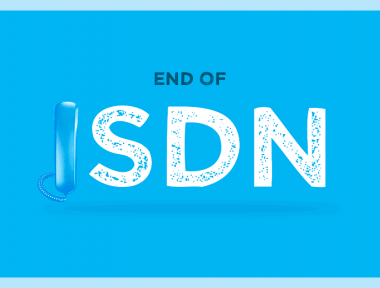
Change is coming
ISDN telephone systems are being retired.
Things are changing in the world of telephony and the traditional multiline telephone circuits that are commonplace in most businesses are being retired. ISDN is old technology and it is planned to be phased out by BT. In 2016 BT announced that from 2020 clients will no longer be able to order ISDN circuits and that ISDN is planned to be switched off by 2025 (subject to them being able to).
So, what should businesses do to plan for this change? Well realistically there are two choices that businesses can look at, SIP (session initiated protocol) which is what you would use if you have your on premises telephone system or hosted VoIP (Voice over Internet Protocol) solution where the telephone switch is in the cloud rather than on premises.
There are advantages to both approaches
SIP telephone system
The SIP telephone system allows a business to not only use a private branch exchange (PBX) but also provides the flexibility of integration with video conferencing using a session border controller to control the SIP call type and to manage call routing. If the right session border controller is used then it can also integrate with Microsoft Teams using a solution called Direct Routing. This means you can then use Teams to make and receive calls on your work DDI telephone number and it can follow you from desk phone to Teams client (either on PC or Mobile but subject to licensing and hardware). With SIP trunks you pay for the number of lines you want to have supported in the solution which is ideal for a business that doesn’t require a line for everyone in the business to be available all the time. For example, if you have a DDI telephone number for the business and you only have 6 lines but the business has 30 employees you can share the lines between the staff like a traditional ISDN service.
Hosted VoIP telephone system
The advantage of a Hosted VoIP telephone system is that it is flexible as the solution is hosted in the cloud and can allow staff to connect to the service either via a VoIP enabled desk phone or a soft client on the PC or mobile (subject to licensing). With hosted VoiP you need to pay for a line for each user even if you do not need to have concurrent calling for everyone in the business. Hosted VoIP requires minimal hardware investment because all you really need is a mobile or a computer running software to make and receive calls.
Time to get planning what your business will do when ISDN is killed off.